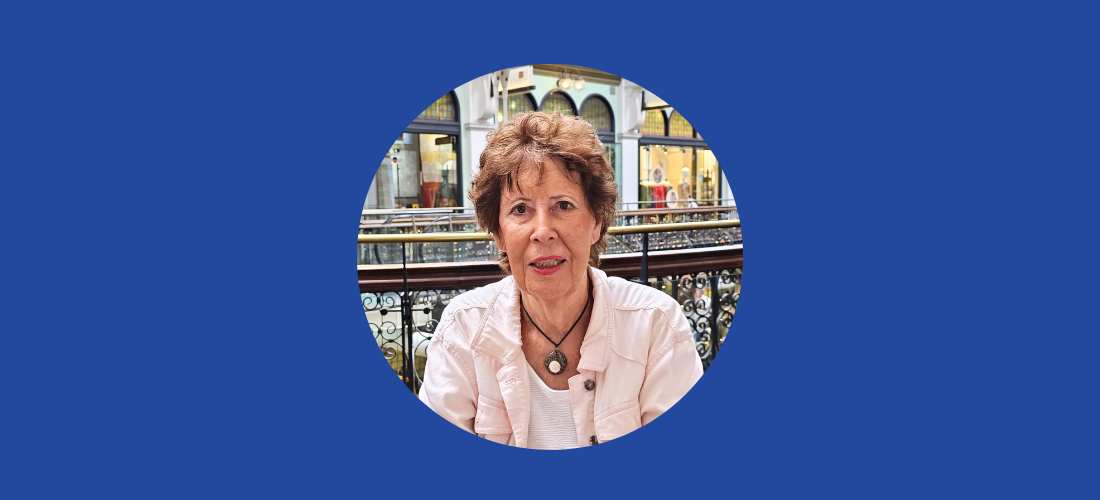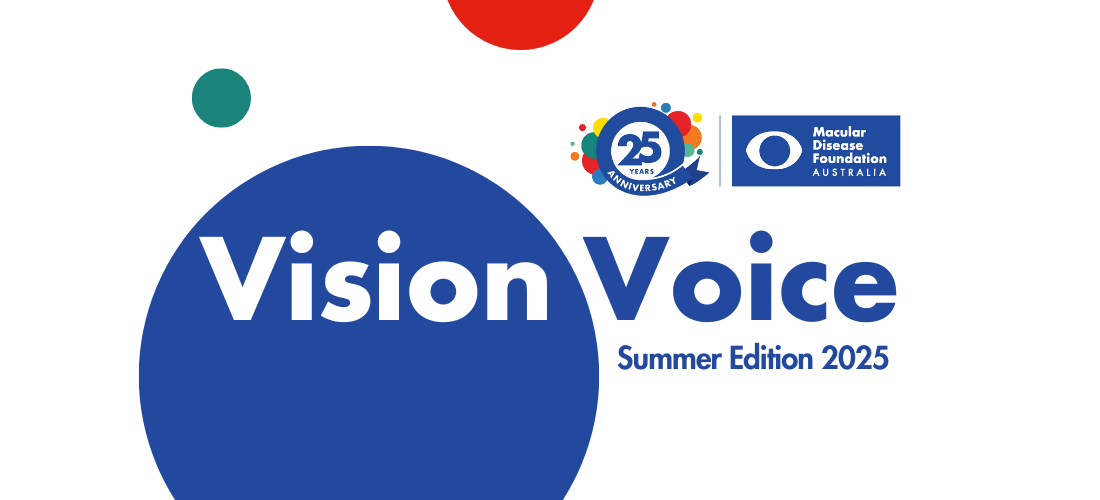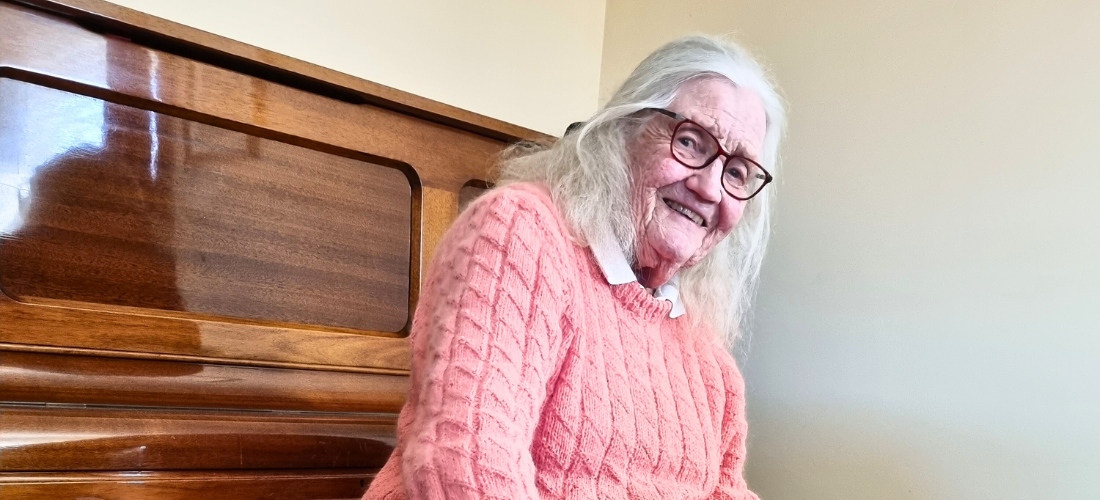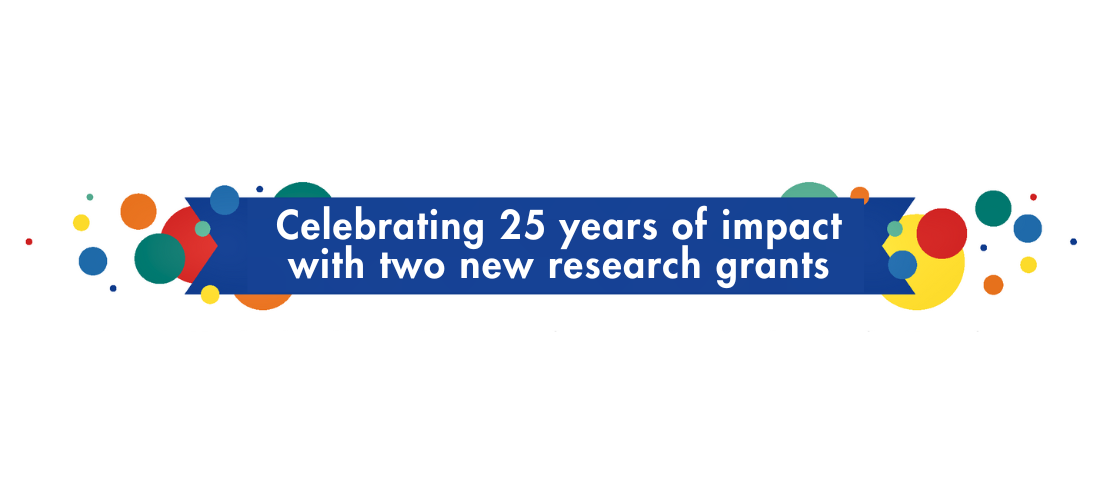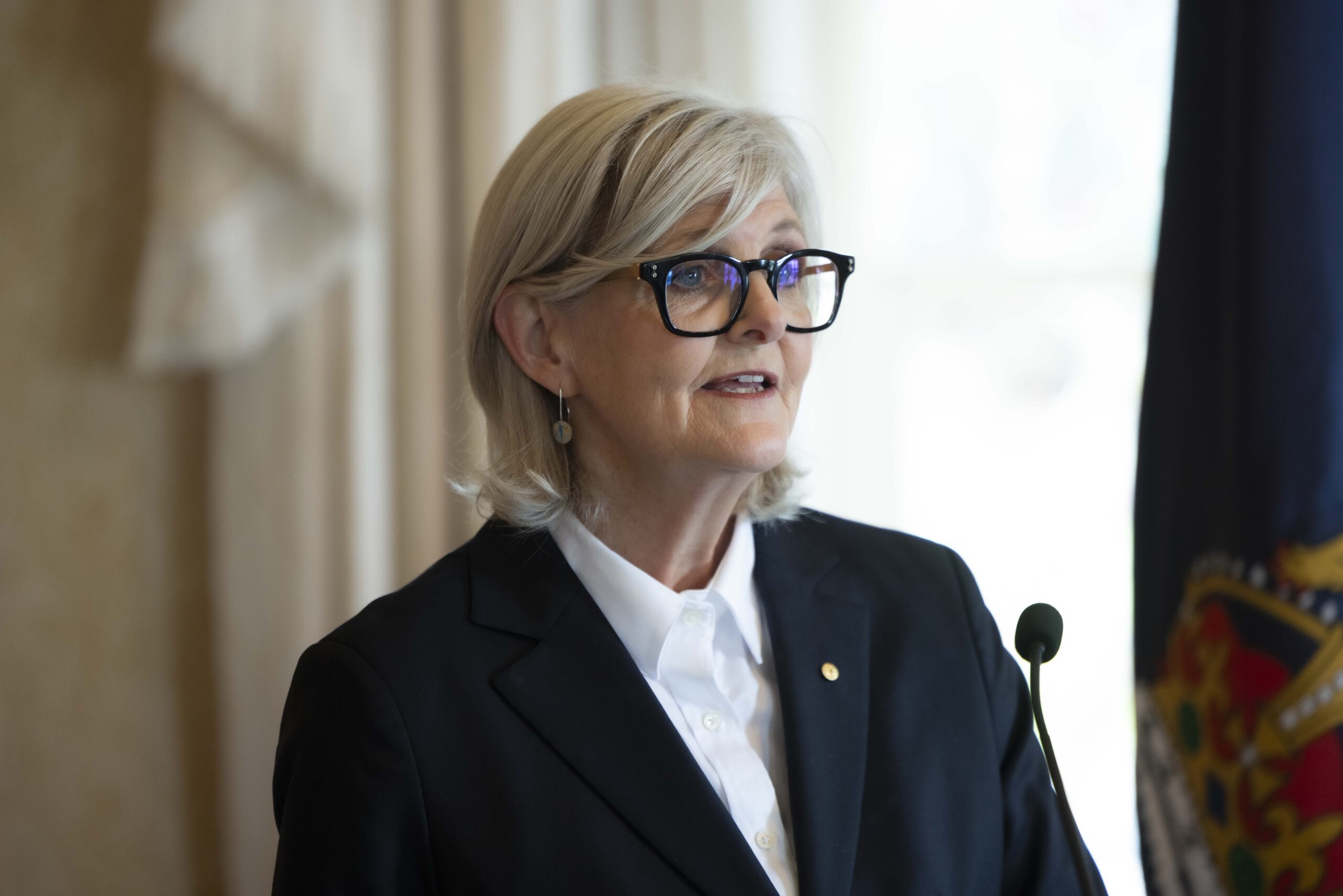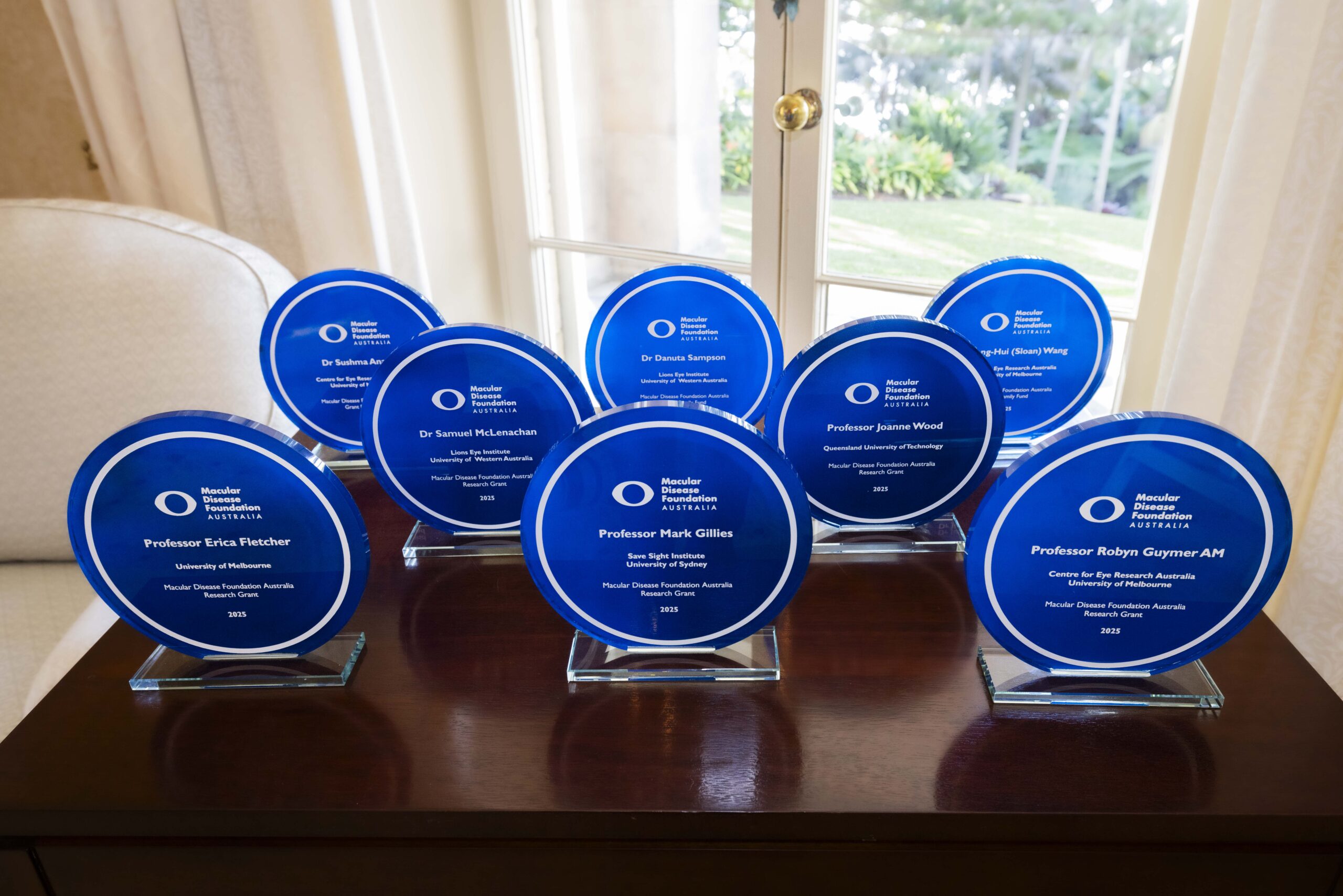AMD through the eyes of a carer
If money was no object, Gillian Cameron would gather the best research minds from across the globe and ask them to focus on “fixing macular disease”.
It is just devastating lives and it is just going to get much, much worse.
Gillian Cameron
Gillian and her husband Derek are primary carers for her aged parents, Roy and Mignon Smith, who are now in their early 90s. Both started developing symptoms of age-related macular degeneration (AMD) in their late 60s.
“It just sort of snuck up on them, gradually getting worse,” Gillian said. “And now, it’s rapidly deteriorating.”
AMD impacts central vision
AMD is the leading cause of blindness and severe vision loss in Australia – it accounts for 50 per cent of legal blindness. One in seven Australians over the age of 50 – or approximately 1.3 million people – have some evidence of AMD.
Age-related macular degeneration is a chronic, painless and progressive disease of the macula. It affects central vision, needed for activities like driving, reading and painting.
This May is Macula Month, an initiative of the Macular Disease Foundation Australia (MDFA), aimed at raising awareness of macular disease and the need for people to have a comprehensive eye examination, including a check of the macula.
Age is the major risk – AMD primarily affects people over the age of 50 and the incidence increases with age. Smokers are also at increased risk. Family history is a strong risk factor for AMD. If you have a parent or sibling with AMD, you have a 50 per cent risk of getting it too.
Gillian is clear of early signs of the disease but is diligent about getting her macula checked regularly, saying she has a “frontline view” of the devastating impact vision loss from AMD has.
No longer independent
“Mum is of that era that is ‘I shall prevail, I will manage it’. That’s Mum’s outlook… she tries not to let people know how bad her eyesight is. She has a shaft of vision and can make out things, but it is getting worse.
“Dad is really practical. He thinks it is pointless railing against the forces of nature and fate that have caused this condition… but still, he suffers.”
Gillian’s parents are both talented artists, a passion they are now denied because of their vision loss.
“The two of them are sitting there, surrounded by all their beautiful art, but they can’t see it. My mother – she is that talented! And my father – he can replicate the Masters. He painted Degas’ ballerinas and Monet’s haystacks and they look exactly the same… except it looks like they have been cleaned.
“So they sit in that studio but they can’t see to do the things that they have the talent for.
“They live next door and we have a bedroom in their place. Recently, we sleep at their place more than our place. Our life is constantly judging: ‘How much more do we need to increase their care this week but not take away their independence? How much support do we give them whilst still enabling them to do what they can?’”
She said while her parents would like to be independent, it is just not possible.
“If you go to the supermarket, you can’t see what is in your shopping trolley. You can’t see what is in your freezer, what is in your fridge. You can’t see if your clothes match, or if they are stained. You can’t see if you are using laundry liquid or softener. You can’t read your prescriptions or distinguish your medications. You can’t see anything.
Macular disease research is the answer
Gillian dreams about what could be done, if she could suddenly invest unlimited funds into research.
“I would gather the top 2,000 of the best researchers in the world. Two thousand should do it. I would build the best research facilities and all the best equipment. And I would build the best education facilities for their children. And I would find the best jobs for their spouses to get them all to come and I would say to them: ‘Come here and sit down and focus on fixing macular disease’.
“We need the top minds focusing on it – on prevention, on diagnosis, on treatment options, on the whole thing. We need some cold hard cutting-edge miracle thing… it has got to be fixed because it is just going to be much, much worse.
“If one in seven Australians over the age of 50 is showing evidence of AMD then the writing is on the wall. And what that writing says is the impact of this disease on our collective society is coming down the pipeline and it’s going to hit like a tsunami. So, let’s all admit it, get the problem onto the table and look at it. Then, collectively, let’s all sort out what we need to do to fix it.”
Posted: 8 May 2019








